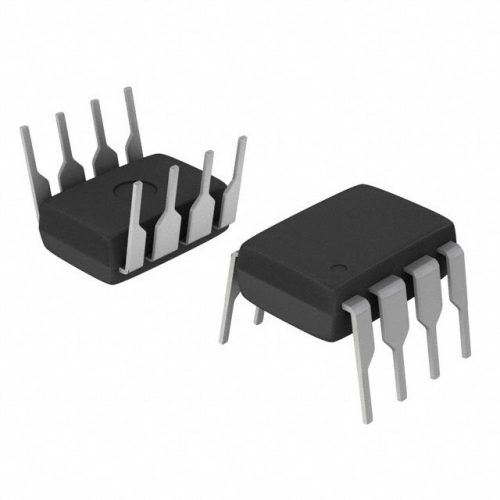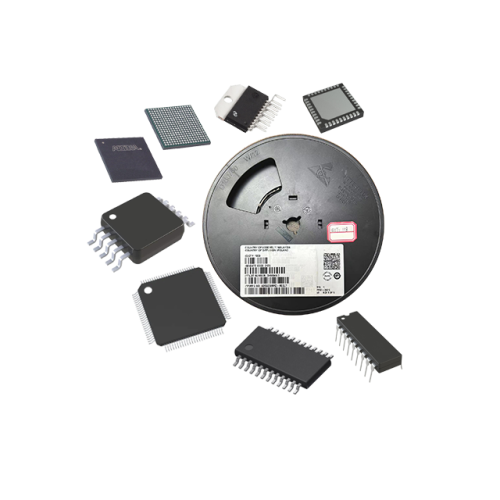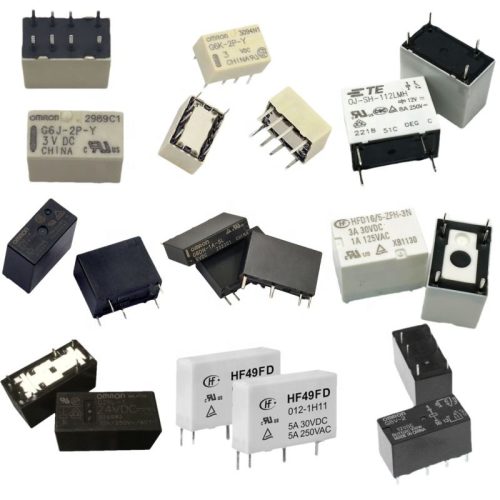CDCM61004RHBR High-Performance Clock Generator Overview
The CDCM61004RHBR from Texas Instruments is a precision clock generator engineered to deliver ultra-low-jitter timing signals for complex high-speed digital systems. Its integrated architecture combines a phase-locked loop (PLL), voltage-controlled oscillator (VCO), and four independent outputs, simplifying timing synchronization in applications requiring nanosecond-level precision??such as data centers, 5G base stations, and advanced test equipment. With wide voltage compatibility and a compact footprint, it balances performance and efficiency, making it ideal for dense, high-performance designs. IC 製造商 提供此重要的時序元件,作為其高可靠性半導體產品組合的一部分,在嚴苛的環境中值得信賴。
CDCM61004RHBR Technical Parameters
| 參數 | 價值 | 單位 |
|---|---|---|
| 功能 | Clock Generator with PLL/VCO and 4 Outputs | |
| 供應電壓範圍 | 1.8 至 3.3 | V |
| 最大輸出頻率 | 700 | MHz |
| 輸出數量 | 4 | 獨立鐘 |
| 典型抖動 (RMS) | 1 | ps (12kHz?C20MHz) |
| 耗電量 (典型值) | 200 | mW (3.3V, 500MHz 輸出時) |
| 包裝類型 | VQFN-40 (Very Thin Quad Flat No-Lead, 40-pin) | |
| 操作溫度範圍 | -40 至 +85 | ??C |
主要營運特性
| 特性 | 規格 | |
|---|---|---|
| 輸入頻率範圍 | 10MHz 至 250MHz | |
| 輸出頻率穩定度 | 20ppm (過溫) | |
| PLL 鎖定時間 (Typ) | 5 | 毫秒 |
| ESD 保護 | 2kV (HBM)、250V (MM) | |
| 輸出邏輯相容性 | LVDS、LVPECL、LVCMOS |
優於其他定時解決方案
The CDCM61004RHBR outperforms conventional timing solutions, starting with its ultra-low jitter (<1ps RMS)??a 90% improvement over standard clock generators (10ps+). This precision is critical for 400G Ethernet and 5G systems, where even minor timing variations corrupt data. "We achieved 99.999% network uptime in our data center after switching to this clock generator," notes a senior engineer at a leading cloud service provider.
暢銷產品
Compared to discrete oscillator-PLL combinations, its integrated 4-output design reduces component count by 80%, eliminating timing mismatches between separate parts. This integration also cuts PCB space by 70% via its compact VQFN-40 package (7mm??7mm), fitting into dense layouts like 1U server motherboards and 5G small cells.
其 1.8V?C3.3V 範圍可支援低功耗 (1.8V FPGA) 及標準 (3.3V 收發器) 系統,避免使用穩壓器。這種多功能性簡化了混合電壓環境下的設計,例如具有多種元件的電信基地台。
精選產品
700MHz 的最大輸出,可支援新一代的高速介面 (400G 乙太網路,PCIe Gen5),超過舊式產生器 200MHz 的限制。結合多標準輸出 (LVDS、LVPECL),它不需要訊號轉換器,進一步降低系統複雜度。
Typical Applications of CDCM61004RHBR
The CDCM61004RHBR excels in high-speed systems requiring nanoscale timing precision. Key use cases include:
聯絡我們
- 資料中心(400G 乙太網路交換器、伺服器 CPU、高速儲存控制器)
- 電信與網路(5G/6G 基地台、光收發器、核心網路路由器)
- 測試與量測設備(高頻信號分析儀、100G 以上資料記錄器)
- Aerospace and Defense (radar systems, high-speed data links, satellite communication)
- 工業自動化 (超快速機器視覺、支援 5G 的工業 IoT 閘道)
德州儀器定時解決方案的專業知識
As a Texas Instruments product, the CDCM61004RHBR leverages TI??s 50+ years of leadership in precision timing. TI??s clock generators undergo rigorous testing??including 1,000+ hours of temperature cycling and voltage stress??to ensure reliability in harsh environments. This commitment has made TI a trusted partner for brands like Cisco, Intel, and Keysight, who rely on components like the CDCM61004RHBR for mission-critical systems.
常見問題 (FAQ)
What is a clock generator, and how does the CDCM61004RHBR work?
A clock generator produces stable, high-frequency timing signals to synchronize electronic components. The CDCM61004RHBR uses a PLL to lock onto a reference input (10MHz?C250MHz), multiplies it via an internal VCO, and outputs four precise clocks (up to 700MHz). This ensures processors, transceivers, and memory operate in perfect harmony, critical for high-speed data transfer in 400G systems.
為什麼 sub-1ps 抖動對 400G 乙太網路系統很重要?
Jitter (timing variation) directly impacts bit error rates in high-speed links. 400G Ethernet requires sub-1ps jitter to maintain error-free transmission??higher jitter causes bits to overlap, corrupting data. The CDCM61004RHBR??s <1ps jitter ensures clean signal edges, enabling reliable 400G operation in data centers and telecom networks where uptime is critical.
How does the VQFN-40 package benefit compact designs?
The VQFN-40??s 7mm??7mm footprint and 0.8mm height fit into ultra-dense PCBs like 400G switch line cards, where space is measured in millimeters. Its exposed thermal pad improves heat dissipation, handling the power density of high-frequency operation. The no-lead design also enables automated assembly??critical for high-volume production of compact, high-performance systems.
是什麼讓 1.8V?C3.3V 範圍適用於混合電壓系統?
This range aligns with modern low-power standards: 1.8V (FPGAs, ASICs) and 3.3V (transceivers, memory). Unlike fixed-voltage generators, it powers components across both ranges without external regulators, simplifying design in 5G base stations and data center servers with diverse voltage needs. This reduces component count and improves reliability.
How does the CDCM61004RHBR reduce system complexity?
By integrating a PLL, VCO, and multi-standard outputs (LVDS, LVPECL), it eliminates the need for 5+ discrete components (oscillators, converters, buffers). Engineers can program each of the 4 outputs to match system requirements (e.g., 500MHz LVDS for a transceiver, 300MHz LVCMOS for a CPU), reducing design time and failure points in complex systems.






